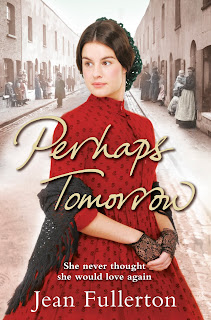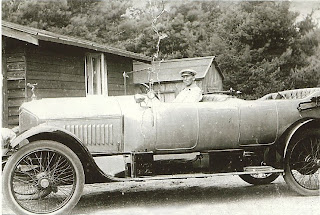
As a native East Ender I pride myself that I know the London docks and the Wapping and Shadwell area of Stepney pretty well. I should do. My family, the Fullertons, have lived in and around St George’s in the East for the past two years but one of the joys of being a historical writer is that you discover such wonderful snippets of knowledge as you go along.
For example, I remembered in the early 60s that the west end of Cable Street was a no-go area for respectable women as it was rife with prostitution and the seedy strip joint that were no more than cafes with rickety tables. But I didn’t know that a century earlier the densely populated other end was nicknamed Knockfergus because of the Irish family who lived there. It’s actual cited on some old maps.
But it’s not just the area that gives me a surprise or two but some of the jobs and industries also.
In my latest book, Perhaps Tomorrow, my heroine, Mattie Maguire, is a young widow who is trying to make ends meet running the family coal yard. This might seem simple enough but the story is set in 1847. Coal was the Victorian’s petrol and vast quantities were needed for both domestic and industrial uses. OK I that information can be found on any history website or book but what about the day to day details Mattie would have to grapple with? Like, what were the different grades? How much a tone was? Was it always sold by the hundredweight or could you buy a bucket to tide you over until the end of the week? And what about the delivery men and their wagons?
Of course, Mattie’s story isn’t about coal. It’s about her struggle to keep the family’s East End business solvent, while she raises her young son and cares for her troubled mother-in-law and how everything she has worked for is threated because corrupt local benefactor Amos Stebbins. Help is at hand, in the handsome shape of fugitive Nathaniel Tate. Nathaniel knows all about Amos as he was wrongfully imprisoned by him. On hearing of the death of his family Nathaniel escapes and tracks Amos, the man he holds responsible for their death, down to Maguire’s and meets Mattie, who offers him work. As Nathaniel begins to help Mattie turn around the fortunes of the business he starts to think less of revenge and more of the possibility of a new future with Mattie. But then his true identity is revealed. On the run from the police, Nathaniel has to prove his innocence, expose Amos, and win back the heart of Mattie. But a furious Amos has other plans…
In the story the coal, wagons and the day to day running of the yard are only mentioned in passing but when they are, the authentic details are there in order to transport you, the reader, back to a 19th century coal yard. Of course, to see if I’ve succeeded in that regard you’ll have to read Mattie’s story for yourself.
Perhaps Tomorrow
Orion Books
ISBN: 978-1409122913
£9.99 or less.






